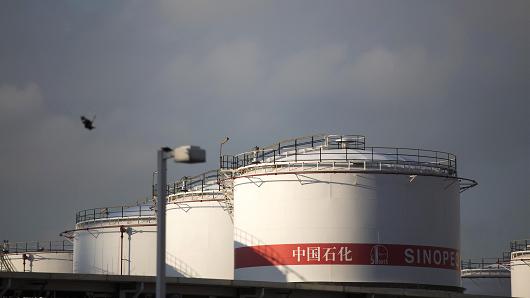China's voracious oil appetite to help balance OPEC output

Oil prices may have tanked in the past 18 months due to weak demand in the face of a supply surplus, but the low prices are likely to spur buying, particularly in Asia, that will help rebalance supply and demand even as the Organization of the Petroleum Exporting Countries (OPEC) sticks with its robust production quota.
"For many Asian nations, current oil prices are welcome in the short term. Indeed, I believe levels of demand will soon reflect the attractiveness of the current prices," said Saudi Arabia's oil minister Ali al-Naimi in a statement posted on the International Energy Forum's website over the weekend.
Crude oil prices have fallen dramatically in the last year-and-a-half and are now below $50 a barrel - half their level this time last year, as OPEC keeps output target at 30 million barrels a day.
The comments by al-Naimi came as China released October trade data, which showed that the major oil importer shipped in 6.3 million barrels of oil a day — a 9.4 percent on-year rise in crude oil imports.
"Crude oil imports should be well supported by the completion of new storage facilities by independent oil players in China, as authorities open up the refining sector," ANZ analysts said of China in a note. Authorities have recently granted these small refiners, known as "teapots" higher crude oil import quotas in a bid to liberalize the downstream industry
BMI Research's Singapore-based commodities analyst Aurelia Britsch said in a note on Friday that BMI expected low oil prices and continued stockpiling activities from China would keep crude oil imports elevated over the next five years, even amid economic headwinds.
Meanwhile, the Saudi Arabian Oil Company chairman Khalid al-Falid told the Financial Times that the company had no plan to cut oil production even after a slump in prices over the past year.
Still, market watchers are betting there is an expiry date on OPEC's bravado after the prolonged depression in the oil market.
OCBC bank economist Barnabas Gan wrote in a note Monday that oil prices below $50 a barrel "cannot last forever". He pointed out to signals from the United Arab Emirates and Iran as two countries who have called for higher oil prices recently as an indication of increasing disquiet in the oil group.
In contrast, there are fewer questions about demand expectations into the next year on the back of sustained growth from the U.S. and demand from China, said OCBC's Gan.
Asian countries rank among the world's largest oil importers. China jostles with the US for the position of the world's largest importer, while Japan, South Korea and India also feature high in the list.
HEADLINES
- Do shipping markets want Biden or Trump for the win?
- All 18 crew safe after fire on Japanese-owned tanker off Singapore
- Singapore launching $44m co-investment initiative for maritime tech start-ups
- Cosco debuts Global Shipping Industry Chain Cooperation Initiative
- US warns of more shipping sanctions
- China continues seaport consolidation as Dalian offer goes unconditional